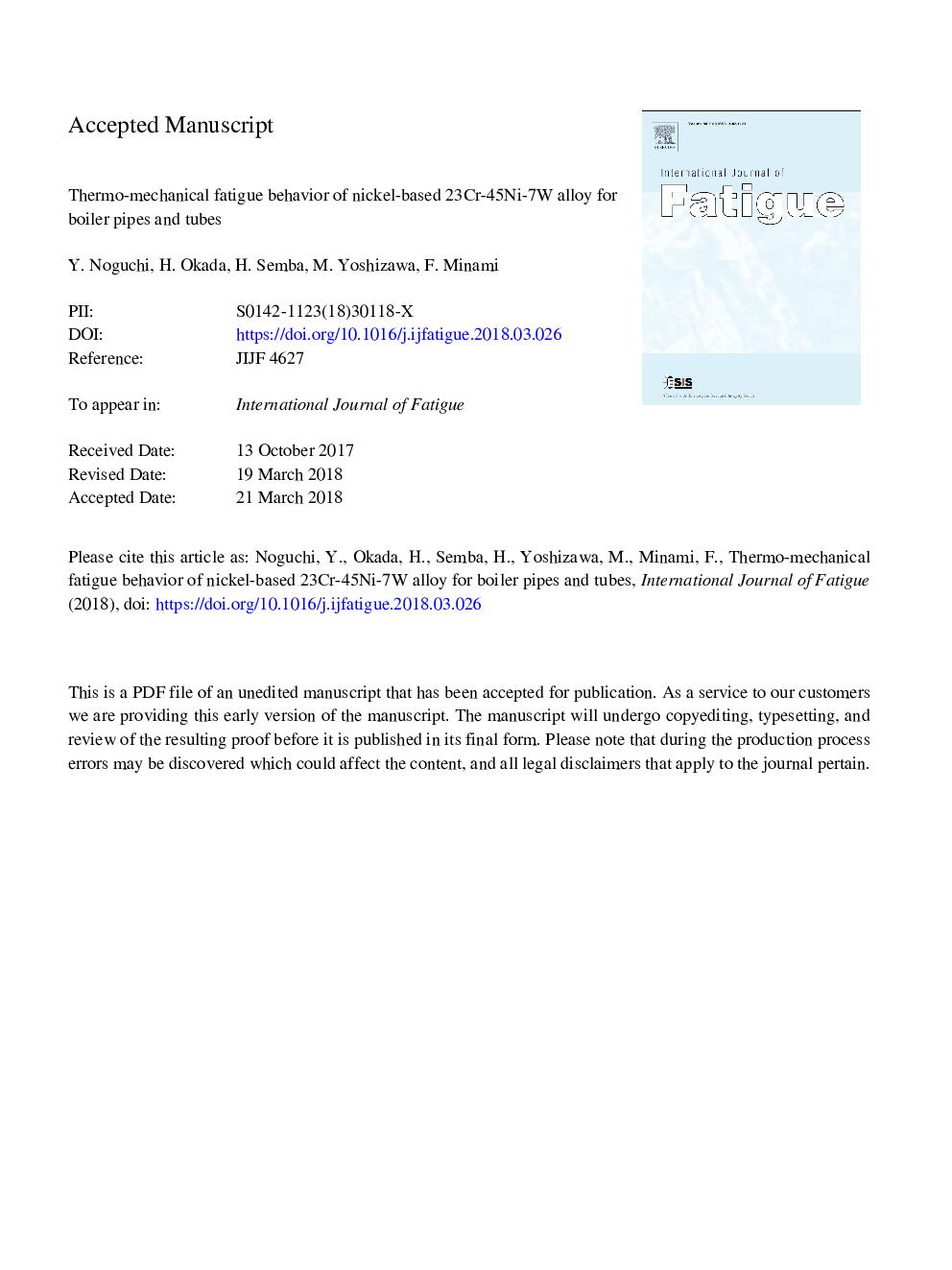| Article ID | Journal | Published Year | Pages | File Type |
|---|---|---|---|---|
| 7171469 | International Journal of Fatigue | 2018 | 28 Pages |
Abstract
This study focuses on thermo-mechanical fatigue (TMF) behaviors of nickel-based 23Cr-45Ni-7W alloy for pipes and tubes in high-efficiency power boilers. TMF tests (maximum temperatureâ¯=â¯700â¯Â°C; minimum temperatureâ¯=â¯100â¯Â°C) were conducted under in-phase (IP) and out-of-phase (OP) conditions. The lives under the IP condition is 0.30-0.44 times of that under the OP condition when same total strain range, Îεt, is applied. The TMF properties obtained via the tests are compared with the results of isothermal fatigue (ITF) tests conducted at 700â¯Â°C and bithermal fatigue (BTF) tests with maximum and minimum temperatures of 700â¯Â°C and 100â¯Â°C, respectively. The fracture morphology for each type of TMF, ITF, and BTF is similar under the test conditions of this study. Intergranular cracking is predominant under application of cyclic tensile creep strain during the fatigue tests, and transgranular cracking is predominant under application of cyclic compressive creep strain during the fatigue tests. The inelastic strain range-fatigue life (Îεin-Nf) relation in the TMF test and the inelastic strain range components-life (Îεij-Nij) relation determined using the strain range partitioning method show a good agreement within a factor of 1.5 scatter band. These results indicate the possibility of predicting the TMF life of the 23Cr-45Ni-7W alloy using the results of the ITF test by considering the amount and direction (tension or compression) of creep strain applied to the alloy.
Related Topics
Physical Sciences and Engineering
Engineering
Mechanical Engineering
Authors
Y. Noguchi, H. Okada, H. Semba, M. Yoshizawa, F. Minami,
